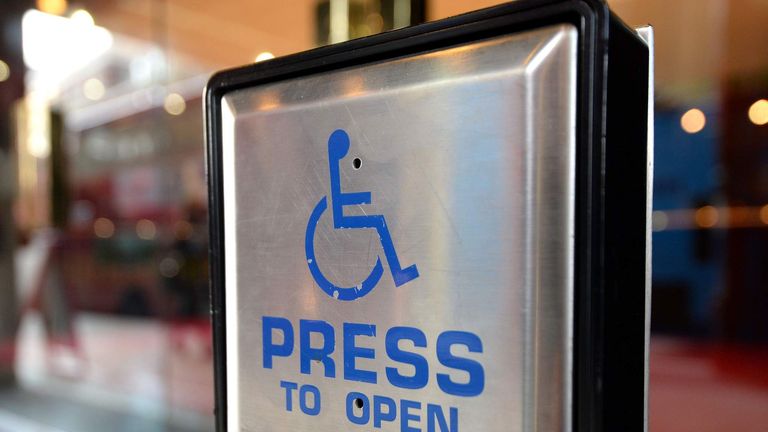Personal Independence Payment Explained
The money helps with the costs caused by long-term ill-health or disability, but the Government says the system needs reforming.
Friday 18 March 2016 08:54, UK
Personal Independence Payment (PIP) is given to people aged between 16 and 64 to help with the extra costs caused by long-term ill-health or disability.
:: Recipients get between £21.80 and £139.75 a week, depending on how severely their condition affects their day-to-day life.
:: The Department for Work and Pensions to work out the level of help a person should receive. This is regularly reassessed.
:: There are two parts to the payment: a daily living component and a mobility component.
:: Someone could be in receipt of if they need help with things like preparing or eating food, washing and bathing, reading and communicating, dressing and undressing and getting around.
:: A person's need is judged through a points system - the more severe the impact in a particular area and the more help required, the more points a person gets and the more money they receive.
:: The assessment first looks at how their condition affects their life. For example, if they need to use an aid or appliance (like a prostheses or easy grip handles on utensils) when cooking a meal, they receive two points. If they cannot prepare or cook food, they get eight points.
:: The second part examines a person's mobility. A person's ability to plan a journey and follow a route without help is tested, as well as whether they can move around without discomfort, such as breathlessness, pain or fatigue.
:: The DWP found the assessment process may not be working as planned. According to the department, "a significant number of people are likely to be getting the benefit despite having minimal to no ongoing daily living extra costs".
:: The DWP said it reviewed a "number of cases" and in 96% of them the "likely ongoing extra costs of daily living were nil, low or minimal". The department's argument is that many of the aids and appliances which people are currently getting points for are provided free by the NHS and councils, may already be in people's homes or could be bought cheaply.
:: The changes the Government wants to make would involve giving less weight to the use of aids and appliances in two of the 10 living activities that are assessed (dressing and managing toilet needs).
:: But by tighter rules and lose up to £100 a week.
:: The plans would save £1.3bn a year, and the Institute for Fiscal Studies predicts 370,000 people would be affected, leaving them each an average of £3,500 worse off.



